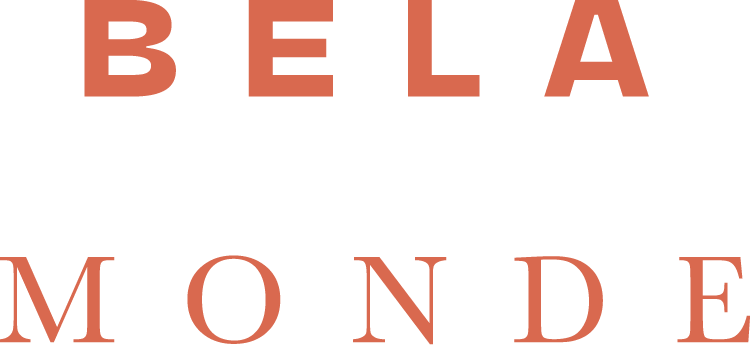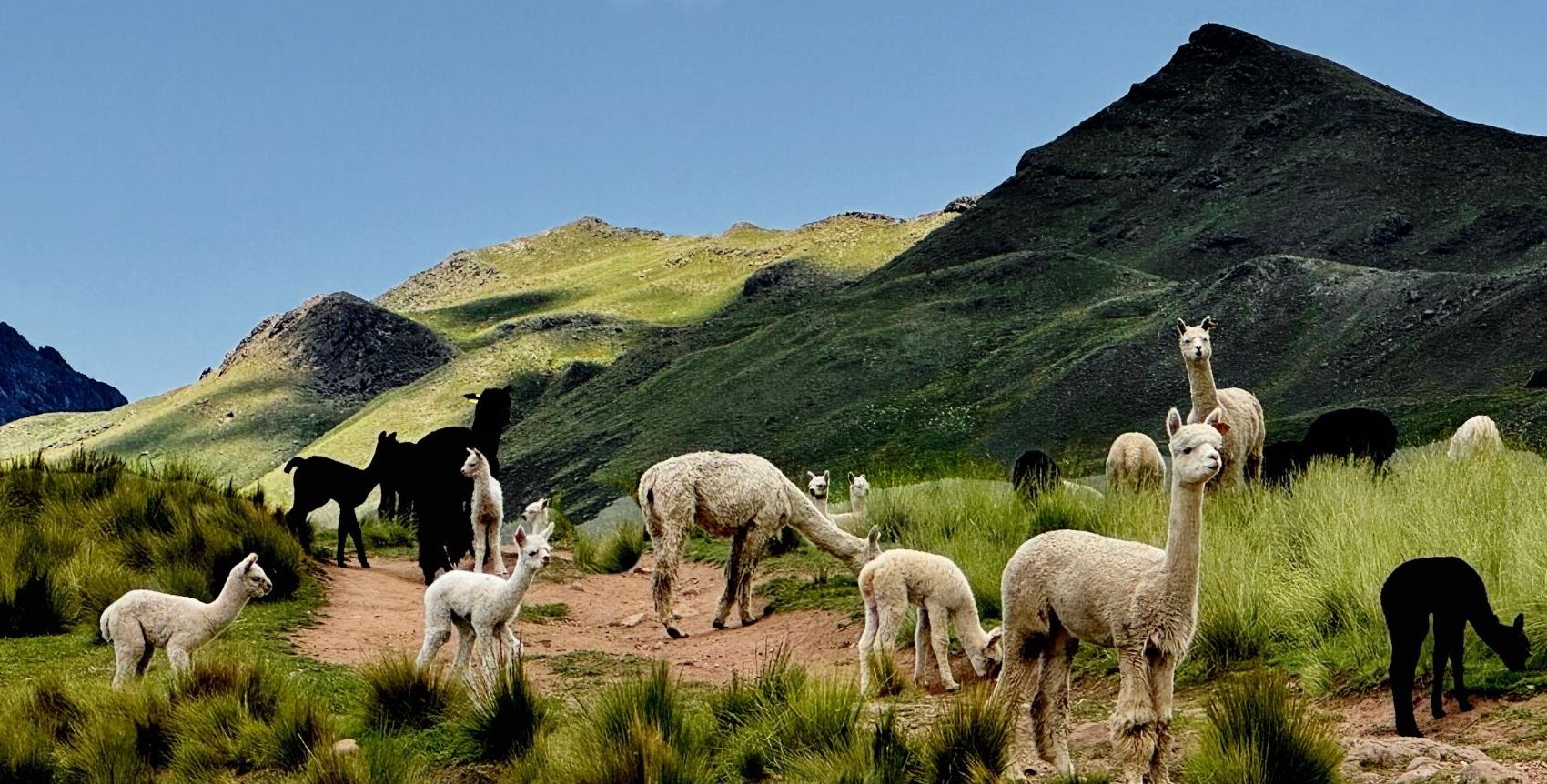At Bela Monde, our values transcend slogans; they are woven into the very fabric of our clothing, with a deep commitment to prioritizing both people and the planet. We intentionally resource natural fibers for all of our garments and avoid waste whenever possible by only producing small quantities of each garment.
We take pride in our partnerships, carefully selecting collaborators who share our ethos. From the farmers nurturing the land to the skilled artisans we collaborate with, we all stand united in our reverence for the environment, and the animals who generously provide us with their fibers.
We approach everything we do with intentionality.
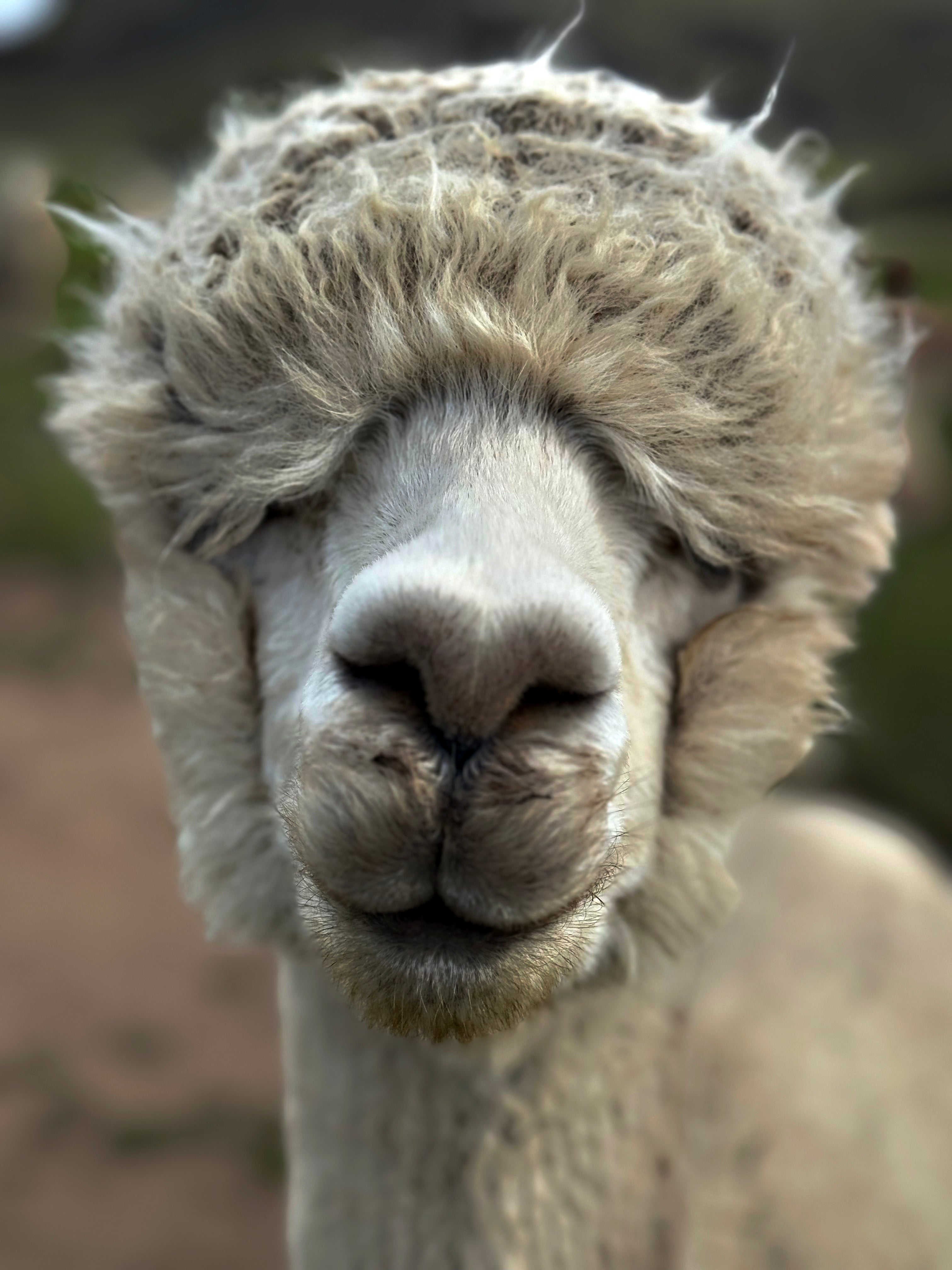
We work with a research facility in Peru, Pacomarca, who focuses on improving the strength and quality of alpaca fibers, which in turn increases the earnings of the families who raise them. Pacomarca also provides assistance for these farm communities with housing, education and clothing assistance.
Our alpaca supplier is committed to animal welfare, raising them with care on pasture in the Andes mountains and shearing their coats individually to avoid unnecessary animal stress and injury. The fibers are produced and harvested without harm to the animals.
Alpacas have a low environmental impact. They do not harm native grasses, eating only the tops of the plant thereby preserving the roots and avoiding soil erosion.
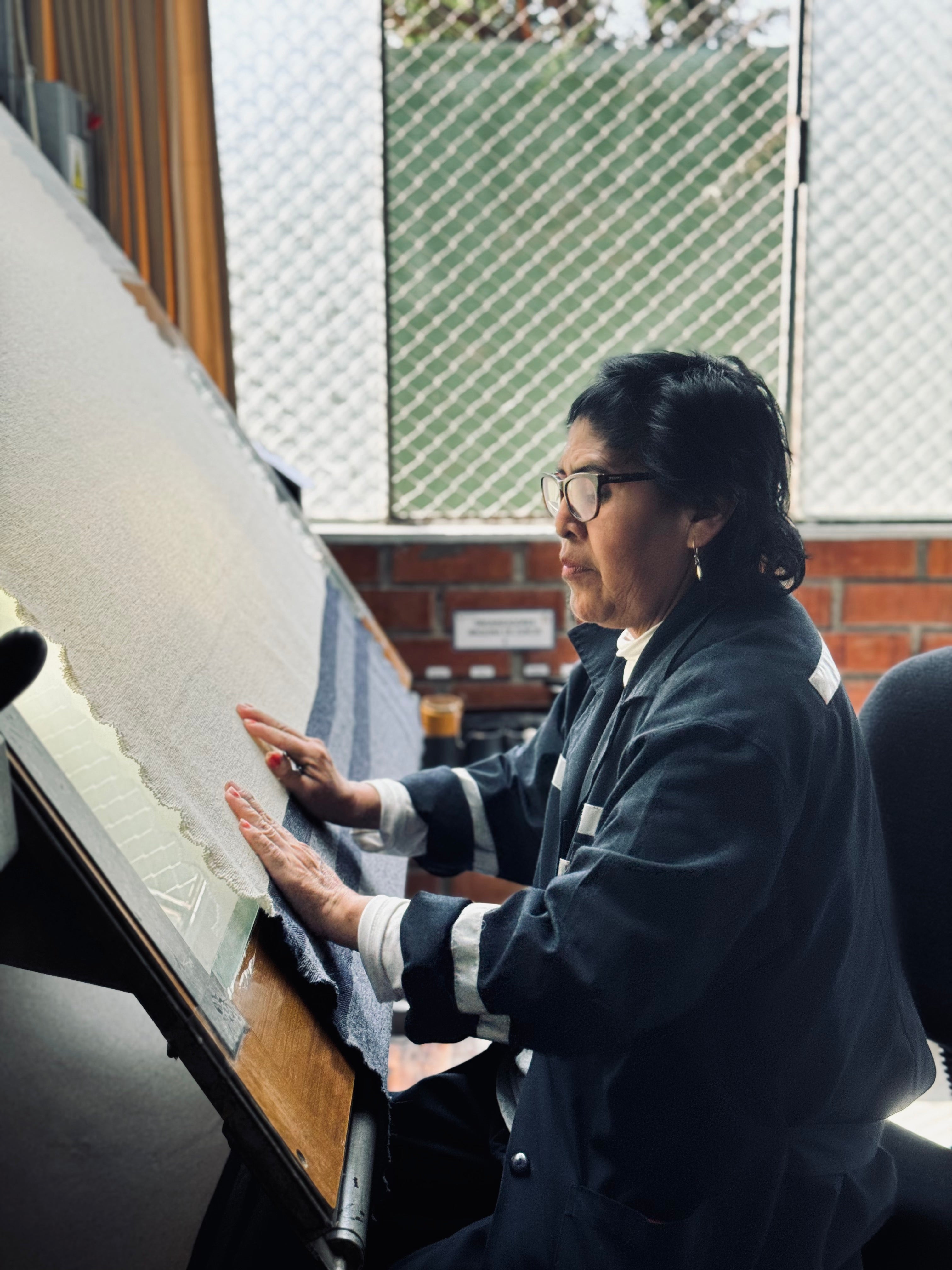
Because alpacas don’t have lanolin or grease, their fibers are easier to clean and thus require less water and zero harsh chemicals for cleaning compared to other similar fibers like wool.
Alpaca fiber is more efficient than other similar fibers. For example, a typical alpaca harvest is 87-95% per animal, surpassing wool at 43-76%.
Our Peruvian alpaca is grown, spun, woven, dyed and sewn in one place which reduces greenhouse gas emissions from transportation.
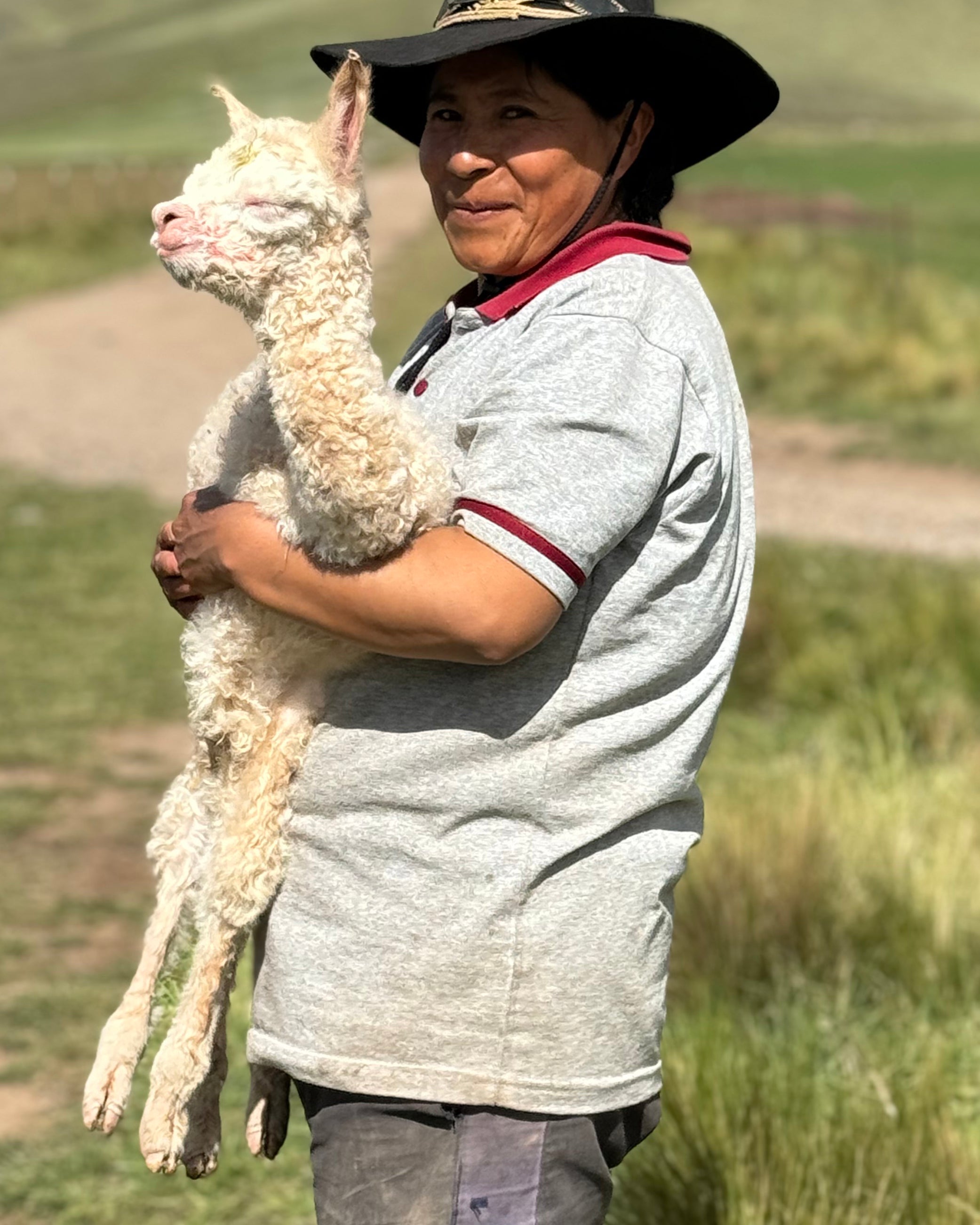
Our alpaca supplier is Fair Trade Certified™, which ensures that the farmers and workers who raised the animals are paid a fair price, the farms are prioritizing workers' rights, and that each is following a rigorous set of regulated environmental standards.
We digitally print our silk, thereby using less water and less energy (2kg CO2e/kg of fabric) compared with screen printing processes.
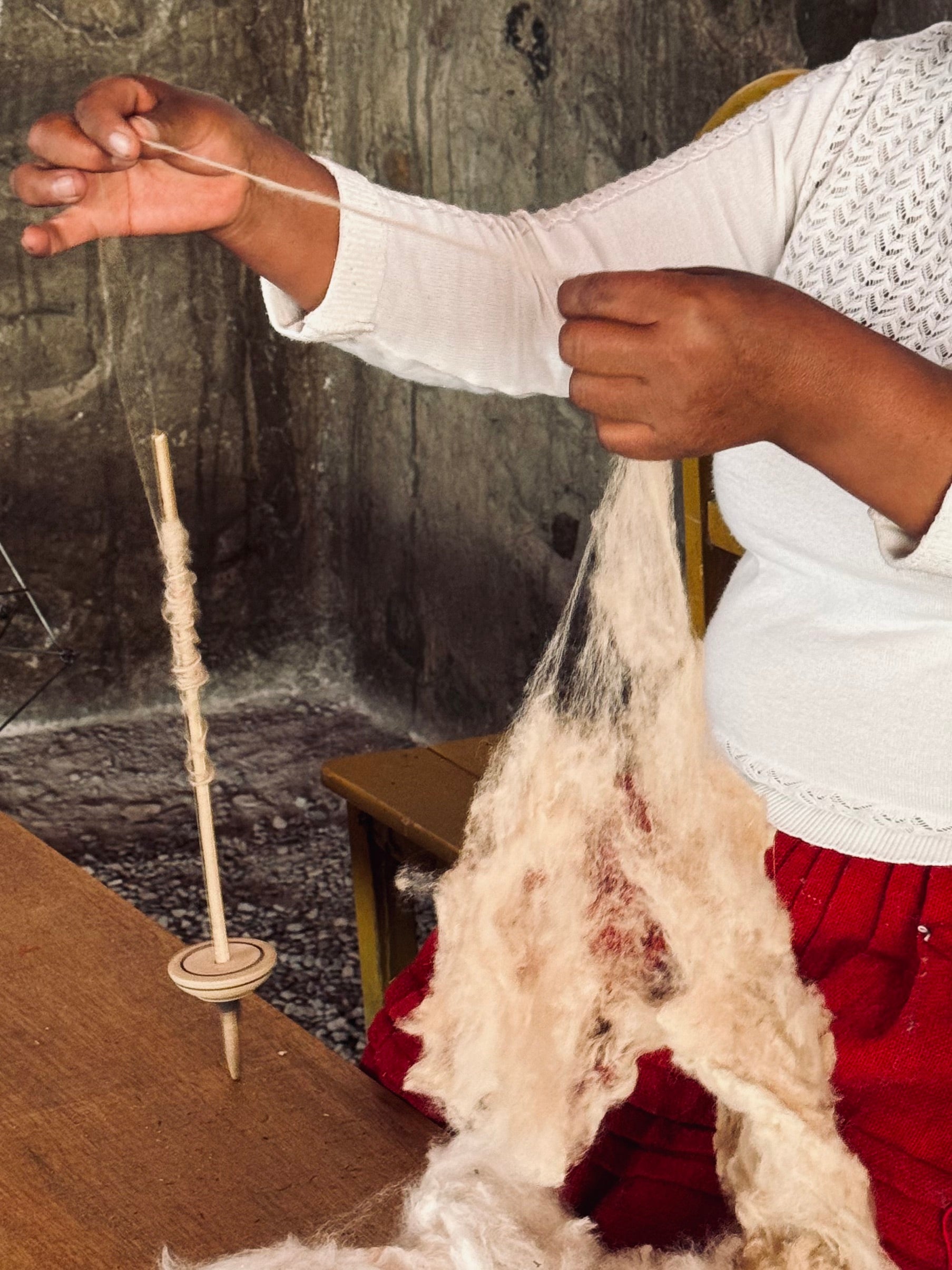
We work with small batch production, creating a maximum of 50 pieces across the size run for coats and as few as 5 per scarf, prioritizing our goal to combat the cycle of excess waste that comes from mass production.
- Our silk apparel and accessories are designed and hand sewn in Providence, Rhode Island
Sources
- “Sourcing Sustainable Fibers: Alpaca & Merino Wool” By Council of Fashion Designers of America
- “Materials Index: Alpaca” By Council of Fashion Designers of America
- “Alpaca: A Soft, Warm Fiber With A Better Ecological ‘Padprint” By NRDC Clean By Design
- “Fashion Fibers: Designing for Sustainability” By Annie Gullingsrud
- “Beyond the Threads: Nest in Peru” By Hall W. Rockefeller for Nest
- “Visiting Peru Proved to Me That Alpaca Is Eco-Friendly and Cruelty-Free” By Alden Wicker, Eco Cult
- “Put Down That Cashmere. There’s a New Luxury Wool in Town: Peruvians have been wearing knits made of alpaca fiber for centuries. But now, there’s a group working to spread their soft secret to the high-fashion world” By Ann Binlot, Daily Beast
- “Peru: Alpaca fiber exports expanded 110% in Jan-Nov 2017” By Andina
- “The environmental impact of screen printing, digital printing, and fabric dyeing” by Carbonfact
